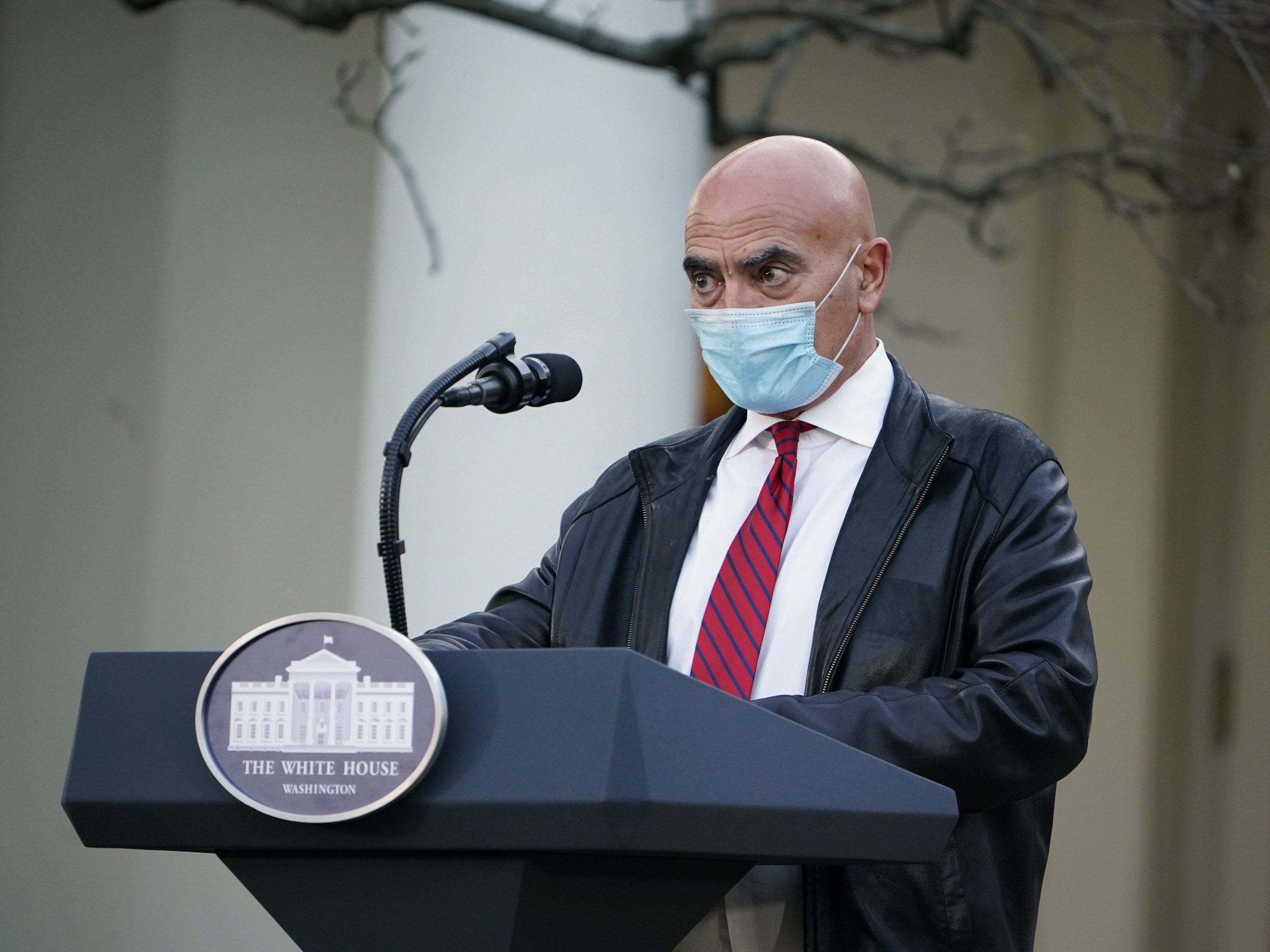
MANDEL NGAN/AFP via Getty Images
- Operation Warp Speed chief advisor Moncef Slaoui said in an interview with The Washington Post on Tuesday that Americans have a “social responsibility” to get vaccinated against the coronavirus.
- “There is a social responsibility here for everybody to really think hard before deciding not to take the vaccine,” Slaoui said.
- Many Americans appear skeptical of a COVID-19 vaccine: One-third said they would not agree to taking a vaccine if it was available, according to a September survey.
- Pfizer and Moderna have each filed with the Food and Drug Administration for emergency authorized use of their vaccines.
- Pfizer said its vaccine was 95% effective at preventing COVID-19 in late-stage trials, while Moderna said its was 94.1% effective.
- Visit Business Insider’s homepage for more stories.
Moncef Slaoui, the chief science advisor to President Donald Trump’s Operation Warp Speed, said Americans have a “social responsibility” in taking the vaccine. Vaccines for existing diseases are what allow Americans to live a normal life, he said.
“Look at the reality of what an infectious agent that we cannot even see has done to our population, has killed more than many wars, has stalled our economy, has completely turned upside down the way we live,” Slaoui told The Washington Post on Tuesday. “There is a social responsibility here for everybody to really think hard before deciding not to take the vaccine.”
Operation Warp Speed, an agency within the Trump administration, launched in May to develop, manufacture, and distribute coronavirus vaccines within a year. Slaoui joined the effort under the condition that political pressure remained away from the development effort.
Slaoui and Operation Warp Speed had provided six vaccine candidates with billions of dollars in funding to speed up the vaccine development and distribution process. Vaccines created by pharmaceutical giant Pfizer and biotech firm Moderna have filed for emergency authorized use with the Food and Drug Administration.
In preliminary analyses of late-stage trial data, Pfizer said its vaccine was 95% effective at preventing COVID-19, while Moderna said its was 94.1% effective.
Survey data suggests many Americans are skeptical of a COVID-19 vaccine. A World Economic Forum poll from September found one-third of Americans would not agree to taking a vaccine if it was available. At least 75% of the country would need to get vaccinated to reach herd immunity, or the point the vaccine a majority of Americans are resistant to getting infected, per infectious disease specialist Anthony Fauci.
Slaoui told The Washington Post if Americans who feel hesitant about getting vaccinated took time to understand the trial data, he felt "confident" they would agree to take the drug. Slaoui said he will be getting vaccinated, and would recommend it for his loved ones, like his 8-year-old son.
"It's really important that we ask questions, listen critically to the information, but listen to the data and allow yourself to understand the performance of these vaccines," Slaoui said. "Vaccines will be what will help us ultimately to control this pandemic."

